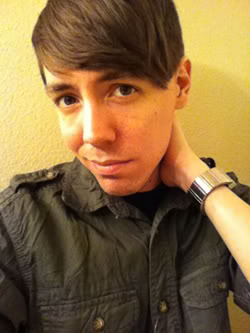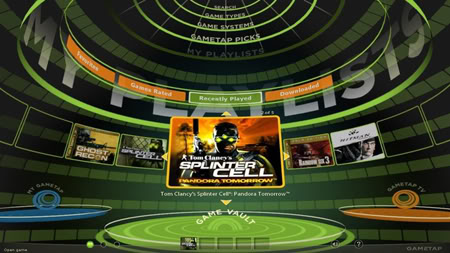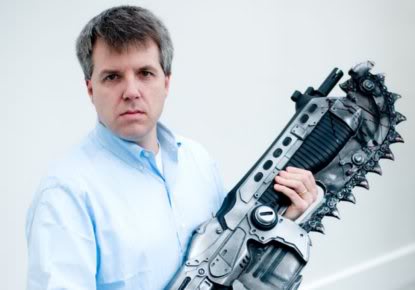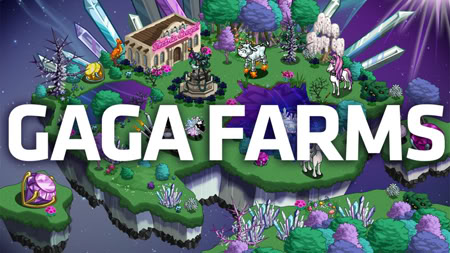This post has not been edited by the GamesBeat staff. Opinions by GamesBeat community writers do not necessarily reflect those of the staff.
 Ever since it entered gaming parlance, “community manager” has been a nebulous title. Every company worth its salt seems to have one. We follow them on Twitter and see them in video interviews. To most people, a community manager is the face that uses Twitter and Facebook to post screens and video and generally spread the word about the company.
Ever since it entered gaming parlance, “community manager” has been a nebulous title. Every company worth its salt seems to have one. We follow them on Twitter and see them in video interviews. To most people, a community manager is the face that uses Twitter and Facebook to post screens and video and generally spread the word about the company.
The job has a lot more to it, however, and much of it isn’t talked about outside of industry panels. To find out more about the life of a community manager, I spoke to Jared Rea, former Ziff Davis intern and community manager with Android and iOS developer ngmoco.
Read on as he reveals exactly what a community manager does, how to go about becoming one, and the realities that prospective applicants need to keep in mind.
Let’s start with this: What is a community manager?
Jared Rea: As a job title, "community manager" doesn't quite do many people in this industry justice. We're firewalls and spokespeople, conduits of creative energy and voices of reason. We're writers and producers, social-media wizards and communication specialists. The overall feeling I get is that people think a community manager is just some dude that posts on forums and maybe has a Twitter, but at any studio worth talking about, there's infinitely more to it than that.
A community manager is someone who can be a champion for the players and ensure that they're getting an experience far closer to the vision of a product they want than they would otherwise. Processing feedback and offering customer support go hand in hand with identifying what it is that your players need and doing so early enough to make a noticeable difference to the overall product. You also have to be able to translate the efforts of auxiliary teams such as public relations and marketing into something easily digestible across a wide variety of formats.
In my experience, internally, community managers are Jacks and Jills of all trades who are skilled in a wide variety of disciplines and can fill gaps among teams, while at the same time trying to utilize these moments to benefit players. Did someone drop the ball on some in-game promotions? Fire up Photoshop, and do it yourself. Not enough in the budget to hire someone to make a totally sweet behind-the-scenes video? Grab a camera and a copy of Adobe Premiere.
This is the primary reason why I believe it's so difficult for people to pin down exactly what it is that makes someone a community manager and what they do. We have the capacity to become the glue that can keep an operation together, and we can never pass up an opportunity to do something creative.
How did you land your first community manager gig?
JR: Officially, my first community manager role was with Turner Broadcasting on their GameTap service. I was still with Joystiq at the time, and while I really enjoyed working with all those guys, I didn't feel like my career was advancing in any meaningful way. After only a few years in the press, I'd accomplished just about everything I had set out to do and didn't feel the desire to climb any further. I had seen the top, and I knew it wasn't for me.
The entire process of falling in with GameTap was actually very informal. I bumped into [former 1UPer] Giancarlo Varanini at a private showing of the original Rock Band. We talked a bit about it, and he was very familiar with my background in competitive gaming and knew I dabbled a bit in social media (which was a new buzzword at the time). A few weeks later I came into their office, interviewed with [former GameTap Editorial Director] Doug Perry and his baby (no joke), and that was about all it took. They didn't really need to do a lot of convincing at the time. I was a fan of the service and appreciated its worth, and they needed someone who could dig in and reach out. For the whopping eight months or so they kept us in business, it was a total blast.
This is probably not the answer that most people want to hear as it was very much a right-place-right-time situation. The truth is, my first CM gig wasn't formal, and it wasn't even called "community management." I got my start in my local arcades, working with my friends and other folks in our regional gaming community, organizing events and tournaments, and figuring out new and innovative ways to reach out and expand our community. That I can do these kinds of things for a living is a happy coincidence because even if being a CM wasn't a viable career path like it is at the moment, I'd still be doing all these things and more for free, with iPlayWinner or whatever other outfit I'm passionate about.

So it is a viable career path? What would you say makes a good community manager?
JR: The problem with community management as a career path is that no two people ever seem to get there the same way. I may be one of many former writers who have made the transition (everyone has to graduate sometime), but that tends to be just one piece of the puzzle. There's really no point in going to school and saying "I want to be a community manager when I grow up." That's just being realistic. Who actually knows if this will be viable five to ten years down the line? If you think it's something you want to do, I'd say look into marketing, mass communication, and public relations, and take it from there. I think when it comes to wanting to get into the games industry, people's overall focus is always too narrow. There are hundreds of different kinds of positions that fall outside of “make games” and "write about games."
As for what makes a good community manager, selflessness is the first thing that comes to mind. At the end of the day, a community manager's goal is to channel the company's message into a humanizing voice, but also to know when to get out of its way. There are some people that don't know how to do this, and so we have these "rock star" types who use the company as a platform, instead of the other way around. It starts to look like the brand they're marketing is themselves, not the people who are paying them money.
Temperament is also very important because anytime anything goes wrong, the first thing people tend to do is call you the most awful name they can think of. You need to be able to roll with the punches and not let your emotions bubble to the surface…ever. You need some real thick skin if you're going to survive because no one else is going to protect you, even when 99 percent of things people hate you for are out of your hands. That's not to say you have to be a robot, of course. At the same time, you must retain the capacity to be empathetic and connect with people. This is the type of stuff you can't teach and why it makes it difficult to actually strive for the job.
Finally, you need to be a genuinely creative person. Everyone thinks they're a social-media wizard these days, so you need to be able to shake things up. I constantly find myself in new situations and predicaments on a regular basis — no matter where I've been — and almost all of them require quick and creative solutions. You need to have that sort of ingenious spark come naturally, and you also have to be able to act on it instantaneously.
Would you say that the best community managers are almost invisible then, or just visible enough? Does a "rock star" type benefit a company in any way, or should your role be so seamless as to be invisible?
JR: There's a definite balance to strike with this. If you're invisible, then you're simply not doing your job. On the other end, if people recognize you more than the product you're managing, then that's a problem all its own. The problem with the "rock star" type is that the message tends to get lost or muddled.
I think the best example of this balance — and probably the best example of who and what a community manager is — is Xbox Live's Major Nelson. He's instantly recognizable due to his exposure, but you also immediately connect him with Xbox — no more, no less. He's also particularly impressive because — and I say this with all the respect in the universe — he's the face of a brand catering almost exclusively to a very young, predominantly male demographic, and he could totally be your dad. And he did this by being very, very good at what he does.

Xbox Live Director of Programming Larry "Major Nelson" Hryb
Can you walk me through an average day at the office for you?
JR: That's really the best part of having so many responsibilities: There isn't an average day. I typically start by checking up on everything I sent out the day before, from assets to communications. After that I put out any fires that have popped up and put together a mental game plan for what the next one is going to be. Then it's off to meetings and tackling everything else that pops up while putting future plans into motion. The mobile/social space that I've moved into is a lot less hectic, though, which is great. It gives me a lot more time to focus and hone in on what it is that I want to accomplish, rather than just trying to throw whatever I've got onto the runaway train and hoping it all works out.
What sorts of things have you accomplished as a community manager? What are you most proud of?
JR: This year has been really great so far. Back in April, I spearheaded a charity fighting-game tournament called Fight for Relief, which helped raise over $34,000 for Japanese earthquake and tsunami aid efforts. In order to pull it off, I teamed up with my Southern California counterparts at Level-Up Series. We held two tournaments in one day across California, complete with a joint online broadcast that allowed for donations. It was really satisfying to not only do something meaningful, but to also mobilize the collective power of the fighting-game community to do some good. It was really very special.
Where are you working now, and what are you working on?
JR: Currently, I'm with ngmoco, one of the world's premiere iOS and mobile developers. I hopped on board to help start their Player Relationships team, which is a really fantastic opportunity for a variety of reasons. I've been a big fan of ngmoco ever since the App Store launched, and the caliber of talent and ambition within the company is really inspiring.
As a strong supporter of iOS and mobile gaming over the past few years now, I've been disappointed in the lack of customer and community relations among this new crop of developers. There is a huge opportunity out there to really inspire these gamers and make them a part of something truly special, just like what we experience in the console- and PC-gaming space. With ngmoco we have a lot of freedom to go about this and some very ambitious plans for the foreseeable future.
How different is running a community for iOS developers compared to, say, console or online or arcade or service-based communities? Is it all pretty much the same?
JR: There are a lot of different challenges, but most of it comes down to the audience. Your average PC and console gamer is well connected. When they want information on a game they hit the message boards. They read gaming sites. They follow the companies they're interested in on Twitter. Gaining an audience and building momentum is an easy-to-understand organic process. They're already actively seeking you out; it's up to you to cast a net and bring them into the fold.
Social and mobile gamers, however, don't do any of these things. They probably found your game thanks to a friend’s suggestion or a stray social feed or it was at the top of the iTunes chart. They log in, they play your game, and that's about the most interaction you'll get organically. To retain their attention and to create a meaningful dialogue requires a lot more legwork compared to more mainstream games, which is a funny way of putting it because these games are the new mainstream. You can't walk into a mall without seeing Angry Birds merchandise or turn on Saturday Night Live without seeing Lady Gaga poking fun at her FarmVille promotion.
To connect with these users requires a lot of work, creative solutions, and just a bit of luck. My mother is actually my barometer for a lot of my more complex ideas as she's essentially the target audience. She has an AARP membership, knows what Facebook is (sort of), and likes to play games like Zuma Blitz and Gardens of Time with her friends and relatives. The idea of technology is both exciting and completely frightening to her. It's a pretty delicate audience; throw in a few freemium models and it gets even more complex.

In closing, is there anything you'd like to add? Any advice for prospective community managers?
JR: Get involved in gaming communities. Just being an outsider and lurking doesn't get you anything. Find your niche, carve it out, and make it your own. Generate content and discussions, run tournaments and contests, host gatherings and other social events. Don't wait for anyone else to give you your opportunities. If you have an idea and the passion to make it happen, then just do it. Nine times out of ten, it's better to ask for forgiveness later than to wait around and ask for permission.
The way the industry is right now, you need to do something to set yourself apart and stand out in the crowd. Filling out an application and hoping for the best will get you nowhere.
